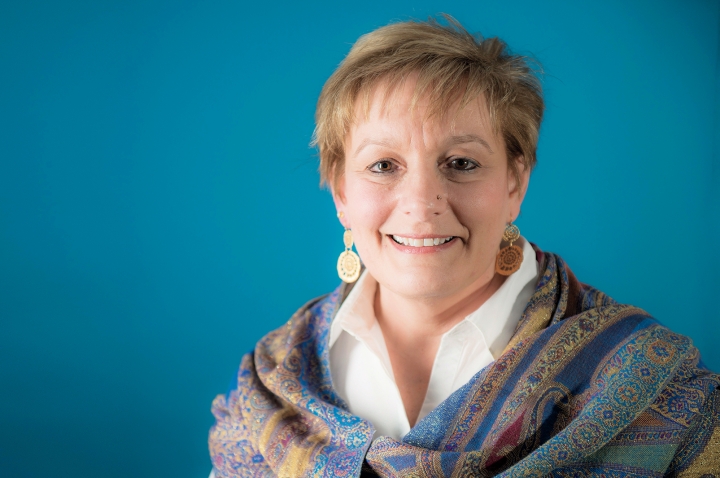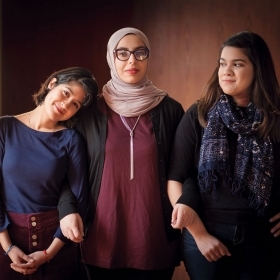Photo by Richard Howard
News of the Jan. 27 executive order—that first presidential attempt to deliver on a campaign promise to ban Muslims from entering the country—landed with a wallop at Wellesley, particularly on the desk of Karen Zuffante Pabon. As the director of Slater International Center and the individual responsible for federal immigration compliance for students, faculty, and staff, Pabon says her work took a sharp turn that day. For the 300 international students she advises, especially those from the predominantly Muslim countries targeted by the first executive order, the turn of events felt even sharper.
One student said the travel ban called into question her “whole life’s journey,’” Pabon says. “She was quite mature about it, but she said she would have to rethink her plan to go to law school, her whole career. She said, ‘If I can’t travel freely, I’ll have to change my strategy and transfer to a school in Europe. I can’t spend my life being trapped here in the U.S.’”
In the weeks after the first order and every subsequent wave of developments—ban issued, ban blocked by courts, and repeat—Pabon’s efforts have been trained on helping Wellesley’s international community stay informed, feel connected, and know they have an advocate on call. Which is no small task, given the expanse of the shadow cast by these decrees. “Different segments of our population are impacted by this in so many ways,” Pabon says. Beyond those from the original list of countries—Iran, Syria, Sudan, Somalia, Libya, Yemen, and Iraq—consider the weight of worry on anyone who is undocumented or has undocumented family members. “We’ve had a huge range of inquiries and fear,” Pabon says, from American students abroad to an accepted student from one of the seven countries whose chances for securing a visa seem to rise and fall with each news cycle.
Pabon’s first move, as soon as the details of the travel ban were released on Jan. 27, was to determine how many students (current, recently graduated, and prospective) were associated with the seven countries. She reached out immediately to reassure them that the College was monitoring developments and to offer the full range of support services available on campus.








We ask that those who engage in Wellesley magazine's online community act with honesty, integrity, and respect. (Remember the honor code, alums?) We reserve the right to remove comments by impersonators or comments that are not civil and relevant to the subject at hand. By posting here, you are permitting Wellesley magazine to edit and republish your comment in all media. Please remember that all posts are public.